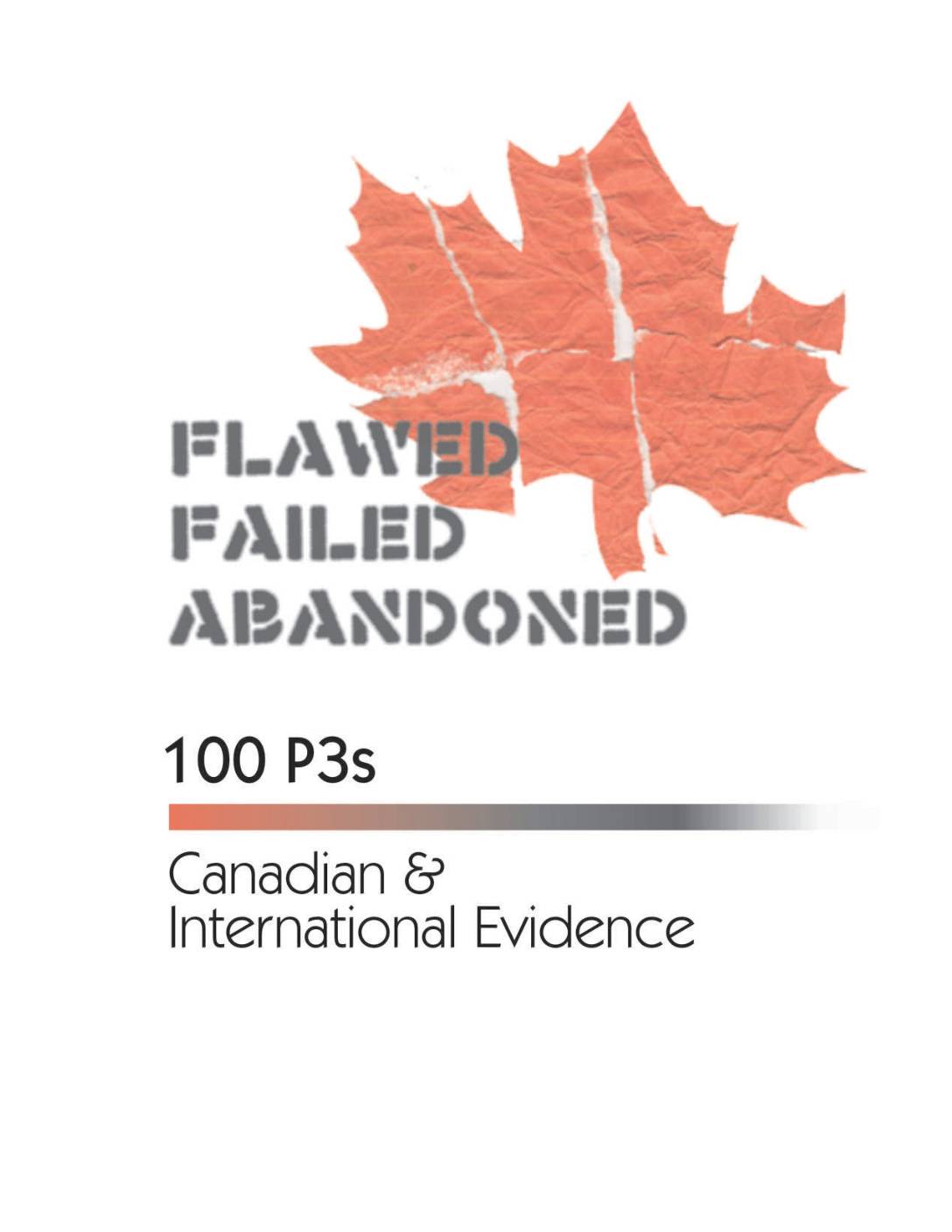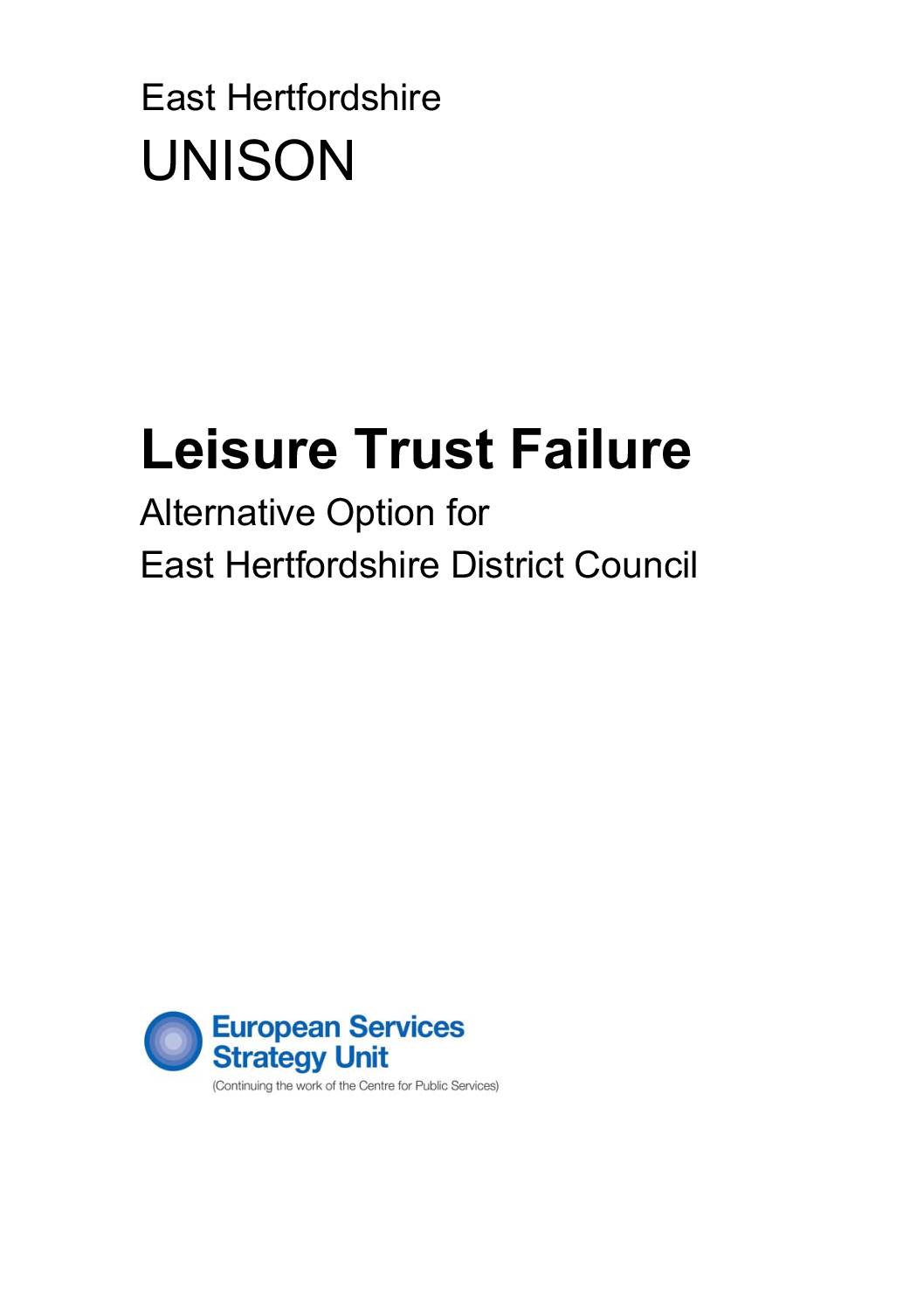Examples of the failures, defaults and financial penalties incurred in outsourced and privatised services. Evidence from UK, Ireland, other European countries, Canada, Australia and developing countries.
Contract and Privatisation Failures
Published on 26th April 2005. Last updated 11th June 2017.
-

Education: Individual Learning Accounts – failed marketisation of training
Failure of Capita’s contract to administer Individual learning Accounts
-

CANADA: Flawed, Failed, Abandoned: 100 P3s: Canadian and International Evidence
By Natalie Mehra, Ontario Health Coalition, with research and support from: BC Health Coalition, Canadian Health Coalition, Council of Canadians, Canadian Union of Public Employees, Friends of Medicare/Alberta and National Union of Public and General Employees. March 2005. Analysis of 100 failed projects.
-

Hospital cleaning
The NHS market testing programme led to a series of contract failures and reduction in cleaning standards in the 1983-2000 period (Public Service Action, 1983-1997). By 2002 some 52% of domestic services contracts were outsourced with an estimated value of £94m according to an unpublished NHS outsourcing study.
-

IBM savings failure in Department for Transport shared services contract
IBM’s shared services contract with the UK’s Department for Transport’s (DfT) forecast £57.0m savings by 2015, but these had vanished by March 2008 and were replaced by a forecast of £81.1m additional costs (National Audit Office, 2008). A centralised Shared Services Centre in Swansea for the departments and its agencies such as the Driver and…
-

Individual Learning Accounts failed marketisation of training
In July 2000 Capita Group PLC won a contract to operate the Individual Learning Account (ILA) scheme under which everyone aged 19 or over had a right to an ILA entitling them up to chose how they spent up £200 on training. Between its September 2000 launch and its closure on 21 November 2001 there…
-

Leisure Trust Failure Alternative Option for East Hertfordshire District Council
East Hertfordshire’s Leisure Services contract with Enfield Leisure Centres Ltd (Aspire Trust) has a major financial crisis. It was £500,000 in the red in the first year of a five-year contract. Resignations of senior staff and the liquidation of the Enfield Trust added to the scale of the crisis – a crisis in the making…
-

London Borough of Southwark – WS Atkins
The £100m education contract to operate the Local Education Authority (LEA) was terminated after two years of the five-year contract. Atkins failed to meet several key targets and claimed the contract was unprofitable. The contract termination cost Southwark Council £1.5m.
-

National Air Traffic Control PPP has to be refinanced
NATS was privatised in July 2001 but had to be refinanced in 2003 because the company’s financial position was not strong enough to continue with capital investment and the airline group was unwilling or unable to invest additional funds.
-

National Express East Coast rail franchise terminated
The Government terminated the National Express plc East Coast rail franchise (London-Aberdeen) in 2009 less than two years into a 7.5 year contract. The contract required the company to pay the government £1.4bn, but had paid just £120m at termination and had failed to make service improvements. The line was renationalised in November 2009 when…
-

Network Rail takes over outsourced rail maintenance
Network Rail originally split the rail network into 20 maintenance contract areas which were awarded to seven firms Amey, Carillion Rail, First Engineering, Balfour Beatty, Amec, Jarvis and Serco. In October 2003 Network Rail made a strategic decision to terminate all contracts and to return all maintenance work in-house following the earlier agreement to takeover…

